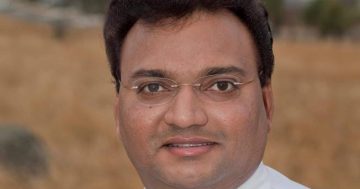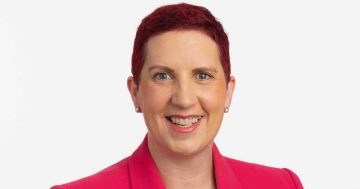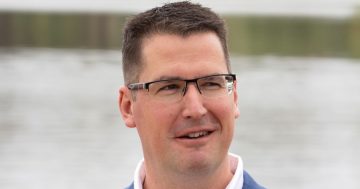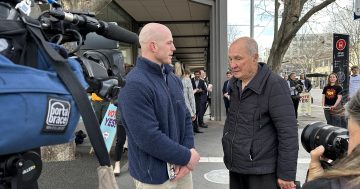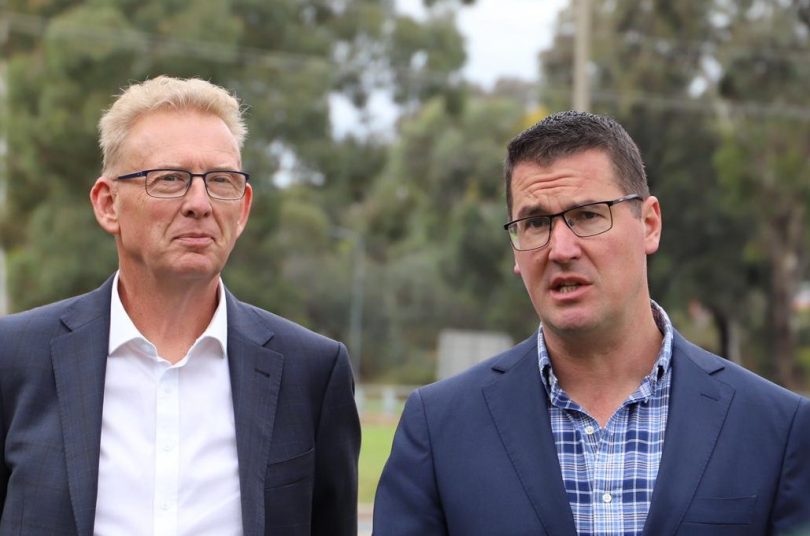
Would ACT Liberals like Mark Parton welcome Zed Seselja’s return to politics? Photo: Cassandra Choake.
Senator Zed Seselja’s defeat at the last federal election was a major national story. It was a perfect fit with the narrative around the teals, with extra traction because he was defeated by former Wallabies captain David Pocock.
The yarn had it all: the Darth Vader of ACT politics, a master of the dark political arts, defeated by a charismatic, committed environmental campaigner who went on to hold the balance of power in the Senate.
For actual Canberra voters, the story went deeper. Senator Seselja had consistently voted against issues like same-sex marriage against the wishes of a large majority of voters. His influence at the local level pushed the Liberals hard to the right in a party room numbers game that seemed bizarrely counter-productive in the most consistently progressive electorate in Australia.
But to misquote Pulp Fiction, it seems that Zed is far from dead (baby).
Media reporting and local contacts say Opposition leader Peter Dutton, himself a stalwart of the right, told party members at a fundraising function this month that Mr Seselja’s race is not yet run. The former senator retains the support of other factional stalwarts in the federal party room.
Separately, Region has been told that of the roughly 500-plus ACT Liberal Party members, Mr Seselja controls around 300. He also has strong support among Young Liberals who have fought bitterly over the party’s direction with outcomes like the great ‘corflute wars’ of 2020.
A low point in the party’s history, the incident resulted in an investigation, an apology to candidate Candice Burch whose signs were slashed, and two Young Liberals quitting the party, including President Ben Dennehy, who worked for Senator Seselja at the time.
This all takes on new significance as the Albanese government considers extending the ACT’s senate representation – an important move that would recognise the Territory’s significant under-representation in the States’ house.
While the ACT has only two senators, it’s less likely that David Pocock would be unseated by a re-heated Seselja. Pocock would face stiffer competition from a moderate Liberal better suited to local supporters who are disenchanted by factional brawling.
But moves afoot to bring the Territory’s senate representation to four open the way for Mr Seselja, currently working as a consultant, to exercise his political muscle and force through pre-selection.
In doing so, he could significantly dent the prospects of a more centrist candidate and would almost certainly take pole position on the Liberal ticket.
There are plenty of other signs that the local Liberal Party’s deep rift has not healed.
Assembly leader Elizabeth Lee has made her intention to heave the party back to the centre very clear, but her deputy Jeremy Hanson continues to focus on light rail – an issue on which Ms Lee has shown little interest – and his strenuous opposition to the Voice referendum, where she is a committed Yes voter (along with Kate Carnell, the last Liberal chief minister).
Mr Seselja’s focus has always been on the party room and, no doubt, factional allies in federal parliament would warmly welcome his return to a disjointed and troubled Opposition laid waste by the teals in 2022.
But the ACT Liberal members must finally make up their minds because it’s they who must pre-select him, not his federal allies.
Does Mr Seselja accurately represent ACT Liberals’ interests? Would his return benefit ordinary Canberra voters? Will the factional wars he spearheaded ever be over?
As the Legislative Assembly’s Liberals look down the barrel of a quarter century out of power with an election looming next year, a Lazarus-like return from Mr Seselja does not seem like a helpful answer to their problems.
















